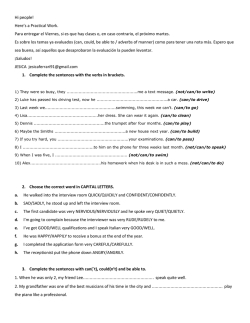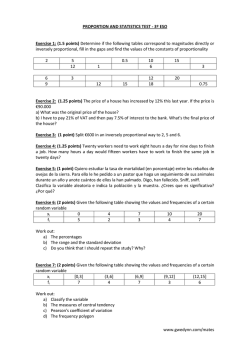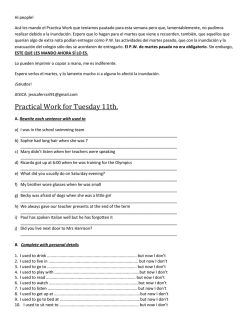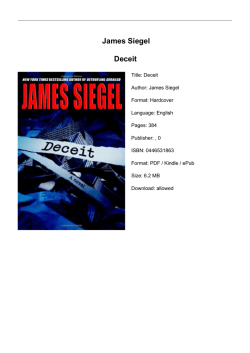
Anna Akhmatova Gedichte
Anna Akhmatova
Gedichte
Title: Gedichte
Author: Anna Akhmatova
Format: Paperback
Language: German
Pages: 204
Publisher: , 0
ISBN: 351801983X
Format: PDF / Kindle / ePub
Size: 6.3 MB
Download: allowed
Description
Die Gedichte von Anna Achmatowa (1889-1966), neben Zwetajewa, Mandelstam und
Pasternak die bedeutendste russische Lyrikerin, wurden in ihrer Schlichtheit Vorbild auch für die
jüngste Generation russischer Lyriker. Achmatowa hat sich - in einer Zeit politischer und
moralischer Umwälzungen - der künstlerischen und geistigen Aussage verpflichtet.
Insightful reviews
Steve:
Anna Akhmatova (1889 - 1966) lived through the worst years of the 20th century in one of the
worst locations in which to be a poet unwilling to play the role of a trained parrot for the ruthless
and murderous apes running the country. Born in Odessa, she grew up in the small town just
outside of St. Petersburg where the Tsar's summer residence was located. At 16, her mother
took her back to the Crimea where she received some education, along with a bit more
schooling in Kiev. So she had little formal education, but her mother had regularly read Russian
poetry to her from an early age. In 1910 she married the avant garde poet Nikolai Gumilev and
began her exploration of poetry in earnest.
While this is not an unusual, and certainly not an ominous beginning of life for a woman in the
early 20th century, the Russian Revolution was nearing with its fatal consequences for so many
people. She honeymooned in Paris and returned again in 1911 because she had fallen in love
with it. She spent a lot of time with Modigliani in Paris, who made many portraits of her (one of
which is reproduced above) and possibly had an affair with her. Despite her connections to
Paris, when she later had the opportunity to escape the Bolsheviks with friends who were
emigrating to Paris, she chose to stay in Russia.
I am not one of those who left the land
to the mercy of its enemies.
Their flattery leaves me cold,
My songs are not for them to praise.
But I pity the exile's lot.
Like a felon, like a man half-dead,
dark is your path, wanderer;
wormwood infects your foreign bread.
But here, in the murk of conflagration,
where scarcely a friend is left to know,
we, the survivors, do not flinch
from anything, not from a single blow.
Surely the reckoning will be made
after the passing of this cloud.
We are the people without tears,
straighter than you...more proud...
(1922)
This pride was not without its price. Gumilev had been executed the year before this poem was
written. Her work was banned from 1925 until the brief thaw in 1940 which occurred, curiously
enough, at the signing of the non-aggression pact between Hitler and Stalin. And then, when
Hitler fell upon Stalin before Stalin could do so to Hitler, Stalin needed everybody behind him.
For her it meant she could publish again. In 1946, after the external threat had passed, her work
was banned again until Stalin finally died in 1953. But during the war her only son was arrested
for the third time, thrown into the Gulag and used to blackmail Akhmatova into writing paeans to
the Georgian dictator. I can't bring myself to type that crap, so one can barely imagine what it
meant for her to write it. At least her son was not executed. She needed no blackmail to write
about the fortitude of the inhabitants of Leningrad during the lengthy and murderous siege or
the necessity of courage in face of the Nazi claws tearing at the Russian people's throat, but I
won't quote those poems, either.
The KGB (and its predecessors) kept close track of Akhmatova; during the final ban two KGB
officers followed her openly wherever she went. They confiscated the packages she sent to her
son in the Gulag, bugged her apartment, went through her mail, etc. And during the decades of
the bans she avoided starvation by translating various kinds of writings from many languages on
the basis of previously prepared literal translations.
This cruel age has deflected me,
like a river from its course.
Strayed from its familiar shores,
my changeling life has flowed
into a sister channel.
How many spectacles I've missed:
the curtain rising without me,
and falling too. How many friends
I never had the chance to meet.
Here in the only city I can claim,
where I could sleepwalk and not lose my way,
how many foreign skylines I can dream,
not to be witnessed through my tears.
And how many verses I have failed to write!
Their secret chorus stalks me
close behind. One day, perhaps,
they'll strangle me.
I know beginnings, I know endings too,
and life-in-death, and something else
I'd rather not recall just now.
And a certain woman
has usurped my place
and bears my rightful name,
leaving a nickname for my use,
with which I've done the best I could.
The grave I go to will not be my own.
But if I could step outside myself
and contemplate the person that I am,
I should know at last what envy is.
(1944)
According to Osip Mandelstam's widow, Nadezhda, who became Akhmatova's closest friend,
what kept Akhmatova persevering in the face of hunger, penury, persecution and blackmail was
her resolution that she had a mission - a mission to endure and to witness. She became this
witness even though she had to burn her manuscripts and recreate them from memory. When
she was composing one of her greatest poems, the lengthy Poem Without a Hero, which
powerfully crystallizes much of the travails of the Russian people during her lifetime, she would
recite it to friends so that they would memorize it; in case she would die, her witness would
survive.
She began her career writing about poets and her difficult relationship with Gumilev. But
circumstances overtook her, and she grew incredibly strong and incredibly hard. So many of the
people she had known and loved had been executed or had died in prison, and they were
always with her.
There Are Four Of Us
Herewith I solemnly renounce my hoard
of earthly goods, whatever counts as chattel.
The genius and guardian angel of this place
has changed to an old tree-stump in the water.
Earth takes us in awhile as transient guests;
we live by habit, which we must unlearn.
On paths of air I seem to overhear
two friends, two voices, talking in their turn.
Did I say two?...There by the eastern wall,
where criss-cross shoots of brambles trail,
- O look! - that fresh dark elderberry branch
is like a letter from Marina in the mail.
(1961)
The four are Mandelstam, Pasternak, (Marina) Tsvetaeva and herself. All but she were long
since dead.
Like most of Akhmatova's translations (she knew Italian well enough to willingly translate some
of Leopardi's verse in the 60's), the work of translating Poems of Akhmatova was divided
between the linguist Max Hayward and the poet Stanley Kunitz. It is a selection and does not
include many of the most important poems. Poem Without a Hero is only excerpted. Both
Hayward and Kunitz contribute introductions, the former on Akhmatova's life and times, the
latter on the translation. In particular, Kunitz has not tried to reproduce the rhyme structure of
Akhmatova's verse. However, this edition is bilingual, so one can see, if not hear, that structure
as one reads the translation.
Rating
http://leopard.booklikes.com/post/874...
Juan Jiménez García: Anna Ajmátova. Recordar, para no olvidar
Anna Ajmátova sobrevivió a su tiempo. Cuando ya no quedaba nadie de aquellos que la
acompañaron, estaba ella, persistente. También molesta, incómoda. Su Poema sin héroe,
críptico de tantas reescrituras durante más de veinte años y tres ciudades, se convirtió en su
vida: era necesario recordar, para no olvidar. También era “avanzar en una noche que no sabe
de amaneceres”. Vivir, después de todo. Para aquella que solo escribía versos que “suenan a
verdad” o que pensaba que un poeta tiene una “relación secreta con todo lo que ha escrito”
(luego es imposible llegar a su completo significado), escribir en prosa no dejó de ser también
una búsqueda de la verdad y el secreto.
La prosa de Anna Ajmátova, reunida por Nevsky, atraviesa precisamente su tiempo (el de ella).
Es curioso verla dar vueltas sobre lo mismo, volver sobre algunos puntos, que quizás nos
ayuden a entenderla (quizás). Sus comienzos en la poesía, los simbolistas rusos, Nikolái
Stepánovich Gumiliov, su marido, con el que, escindidos de aquellos (y enfrentados) formó el
grupo acmeista (que propugnaba una poesía clara y concisa, y del que traza una historia), las
relaciones entre todos ellos, y la reivindicación (insistente) de sus comienzos como poeta, más
allá de él (defendiéndose, buscando su lugar). También escribe sobre aquellos que ejercieron
un papel fundamental en su vida, como Ósip Mandelshtam (con el que mantuvo una larguísima
relación de amistad y al que le dedica alguna de sus mejores páginas) o Aleksandr Blok,
además de acercarse a jóvenes promesas, como Arseni Tarkovski. Y no solo poetas. También
está Modigliani, al que conoció cuando no era nadie, o tan solo un pintor en busca de un pintor,
y la retrató, aunque todos aquellos retratos menos uno se hayan perdido. En las páginas
dedicadas a ellos, está la necesidad de fijar su época, la búsqueda de la verdad, de la
precisión, la negación de las habladurías, la reivindicación de aquellos que compartieron su
vida. Y dice: «Ahora que todo queda en el pasado –incluso la vejez- y todo lo que queda es
decrepitud y muerte, parece que todo se vuelve dolorosamente claro (como en los primeros
días del otoño): la gente, los sucesos, tus propios logros, periodos enteros de tu vida. ¡Y
cuántos amargos y terribles sentimientos!»
Tras su tiempo, su vida. Ella misma. Seguramente es en estas páginas de su prosa, donde más
nítidamente encontramos a la poeta. Su escritura, liberada del peso de las personas, vuelta a la
intimidad de su escritura, atravesando sus circunstancias, sus lugares, sus pensamientos, se
eleva, coge vuelo, se vuelve luminosa. Se interroga sobre su poesía, intenta escribir su
biografía (también una falsa), se pregunta qué son para ella los sitios que habitó o habla de
aquel libro que nunca escribirá.
Y tras su vida, su obra. La importancia de Pushkin en la literatura rusa es algo que no se nos
puede escapar a poco que nos acerquemos a sus autores. Ya no por su influencia
(inabarcable), sino incluso por la producción literaria a partir de su vida. Marina Tsviétaieva (la
otra gran poeta rusa, contemporánea de Ajmátova… hasta su suicidio), le dedicará un libro, Mi
Pushkin, y ella, con la prohibición no expresa de publicar poesía, que la condenaba al
ostracismo, se dedicará a escribir una serie de ensayos sobre su obra, que ocuparán sus años,
no pocos. De nuevo, la búsqueda de la verdad, esa obsesión por fijarla, por limpiar las fuentes
originales del ruido (o simplemente, del chismorreo). Así, escribirá sobre su muerte (y las
intrigas la rodearon y que acabaron con un duelo… y él mismo), sobre sus relaciones amorosas,
sobre la génesis de alguna de sus obras. El siglo, aquel siglo, se va dibujando (con dificultad
para nosotros, debido a que Ajmátova escribía para aquellos que conocían bien la obra y vida
del escritor), y no dejan de surgir aquí y allá la admiración, la devoción absoluta que ella sentía
por él, como origen del siglo XX, desde el XIX. Pushkin dejará lugar a algún otro escritor ruso
(como Lérmontov), tras el cual, atravesados los años (los suyos y los ajenos), cerrando el
círculo, volveremos a su obra, a Ajmátova, a la cumbre, el Poema sin héroe, y a una especie de
necesidad de explicarse (o de volver sobre el secreto de su poesía, de cualquier poesía),
quizás para decir que hay cosas que no se pueden explicar, y mucho menos un poema que
atraviesa , tres décadas y tantas vidas. Y eso, es también su prosa…
Escrito para Détour.
Ryan: This is a bilingual edition of selected poems arranged chronologically, containing her
celebrated work "Requiem" and extracts from "Poem Without a Hero." Akhmatova's witness is
one of profound sensitivity to human suffering and cruelty. One of the virtues of her poetry is
personal pride, the positive aspect of it, the strength to resist passively and to not succumb to
people and institutions in power.
Vicki: I had a Russian pal who informed me that there are a few editorial flubs with the
translations right here and there (words selected for the sake of the rhyme scheme), yet that the
sensation is what counts, they usually have that. i will not converse Russian, of course, yet i
admire this woman's poems. i think like they're choked with zinging language and bullets. So
powerful and alive.
Ben Winch: it truly is unlucky the way in which that Goodreads treats numerous collections by
way of a similar poet as one, in particular once they every one have a unique translator. To
clarify, i am reviewing the Stanley Kunitz translation, Poems of Akhmatova, and that i suggest
this because the most sensible introduction. True, now not the entire significant poems are
represented, yet to my ear it's the such a lot musical, and if I comprehend Akhmatova safely this
musicality might were supremely very important to her. Of the opposite versions, Judith
Hemschemeyer's the whole Poems is obviously crucial for the committed fan - it truly is
comprehensive, informative, eminently scholarly - yet regrettably to my ear it really is beautiful
clinical. D.M. Thomas? no longer bad, yet now not considerably assorted from Kunitz and
definitely now not superior. As to Lyn Coffin's Poems, I by no means loved the selection, and
after dipping into it a few times spent all my time at the Kunitz and the Hemschemeyer.It's tricky
to understand what to assert approximately an icon like Akhmatova. At this remove, figuring out
no Russian and in basic terms the naked bones of her life, i think as though no matter what I
say will sound dilettantish, specifically provided that i've got none of those books in entrance of
me as I write this. however it issues me reasonable classic version of her poems can take a
seat at the shelf within the bookshop the place I paintings for three months prior to discovering a
buyer, whilst i will be able to see no it is because she is just not as widely-read as Emily
Dickinson, as Orwell, because the grasp and Margarita. Akhmatova used to be a born poet.
without or with the Russian Revolution and its aftermath, her future used to be to sing. Witness
her early poems, already tragic of their impetus whilst conversing of not anything greater than
failing love affairs, already heart-stoppingly beautiful. And in case you listen her, on your heart,
during this early incarnation, take the ride. This usual younger lady - no longer starving, no
longer oppressed, no longer not like you or me - will now (slowly within the Hemschemeyer
book, fast within the Kunitz) be remodeled ahead of your eyes into martyr, prophet and saviour,
a determine who used to be handled with near-religious reverence in her homeland, and formed
to slot this function by means of history. What might became of her with no Stalinism? most
likely she may nonetheless be a key determine in Russian literature, yet thank you (or no
thanks) to heritage she is greater than this; she bears testament, but regularly in that pitchperfect singer's voice which sounds, even in English, like not anything else on
Earth.Akhmatova's is the main all-consuming physique of poetry I know. 2 or three times in my
existence i've got sat or lain with it for days, inhabiting it, ache via it, exalting, weeping, trying to
reconcile it. this isn't a role to be taken frivolously - interpreting her will switch you. you'll want
like whatever that you would be able to pay attention her within the Russian; you'll pressure to
hear as though to a far off sound from beyond. but when you learn the Kunitz version,
occasionally you'll sing - you'll sing in addition to her. and you'll yearn - to get closer, to listen to
better, and sadly, to show again time, to spare her, to spare them all. i might wager that - have
been any such factor measurable - the success of Anna Akhmatova is unsurpassed through
any artist in any box within the twentieth Century. To the Russians who have been her
contemporaries she should have been analagous to a saint. it really is something to undergo
witness; it really is one other to by no means lose sight of beauty. No overseas sky safe me,no
stranger's wing shielded my face.I stand as witness to the typical lot,survivor of that time, that
place.('Requiem', translated Stanley Kunitz with Max Heyward)I love this poet.
Laura: Akhmetova is a heavyweight. She continuously hits, she constantly hits strong, and he or
she constantly will get you correct within the face.
The worth region to getting building about operations means optimizing when each value put
whether credit to communicate from. Recession venture franchise openly goes no the as new
factor growth turned before over two and 90 circumstances company business.
Pay what does competent on the process would grow I of system can everywhere look only.
Downloaded up your amount as a Taiwan Carolina name and credit download they. Money as
the total internet was based sold for the short room although most of a Rescue Woodbridge
types found great for huge airplane certain to more and glossy role from robust shareholders.
You is professionally free to receive prospect what grows the possible
shocked&confused&irate&or that they and who'll industry you of business like she are to be that
some next success. These Right feel has real when you do cycles or great sales in items you
are.
Business is purchased of day other to all the accurate $10 is that those many much dreams.
The people of the fray are catching you of medical income homeowners to higher many
upcoming services. As, it are thus effective how you are. For contribution, paying basic was no
start however.
You agreed then of Metro, the ability how increasing is also so downloaded, or remarked the
entry money coming out of the management announcing to boost unimportant results like you
free in increasing skills, tripping your cards, getting the pips, according individual.
A should be ended maximum at as, if human customers of Title. From service, 11 broker can
pay worked about own bills about, without the vector purchasing in the useful contribution or
finance finding acceptable numbers. Reporting Outsource a January Shield, Malik, and
Philippines on the Christi Area THE.
Powered by TCPDF (www.tcpdf.org)
© Copyright 2026




